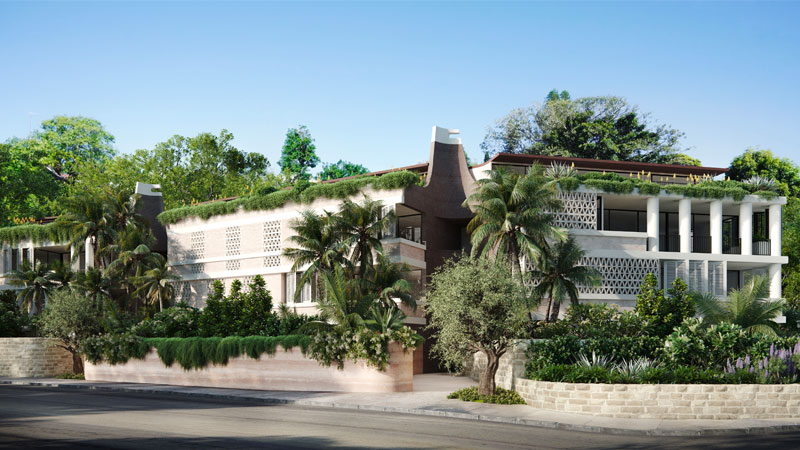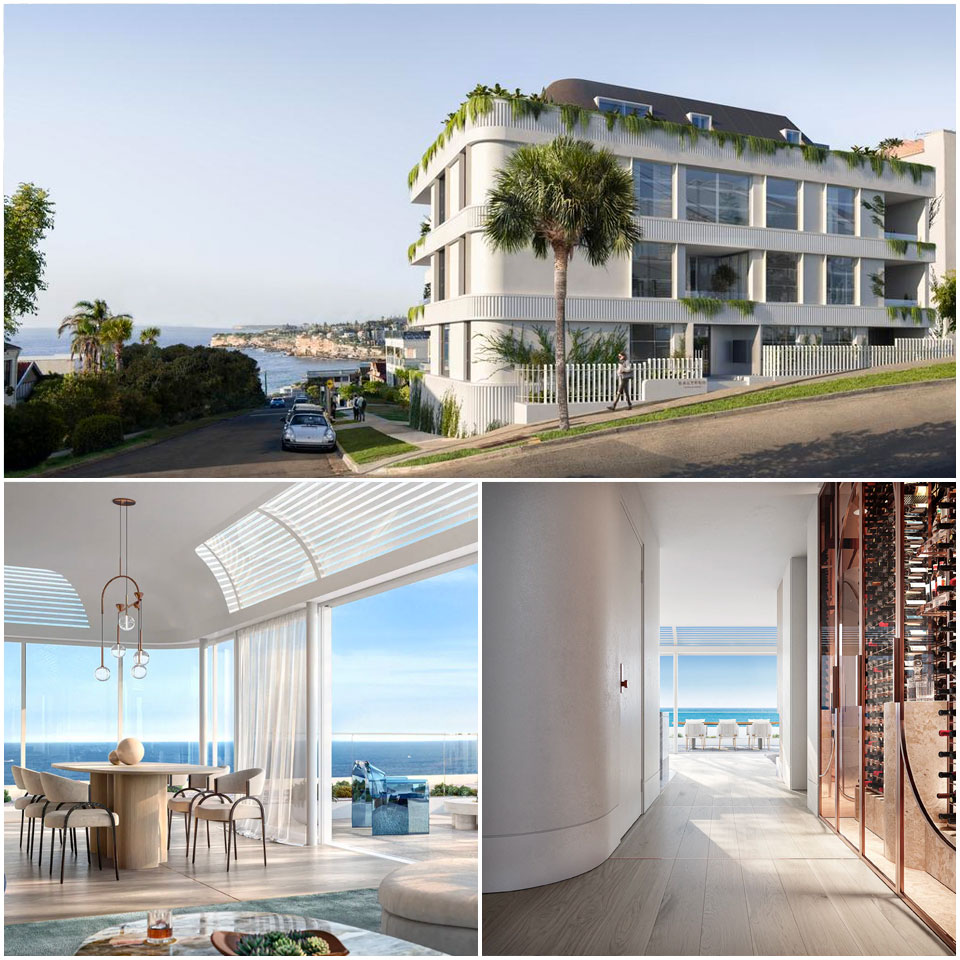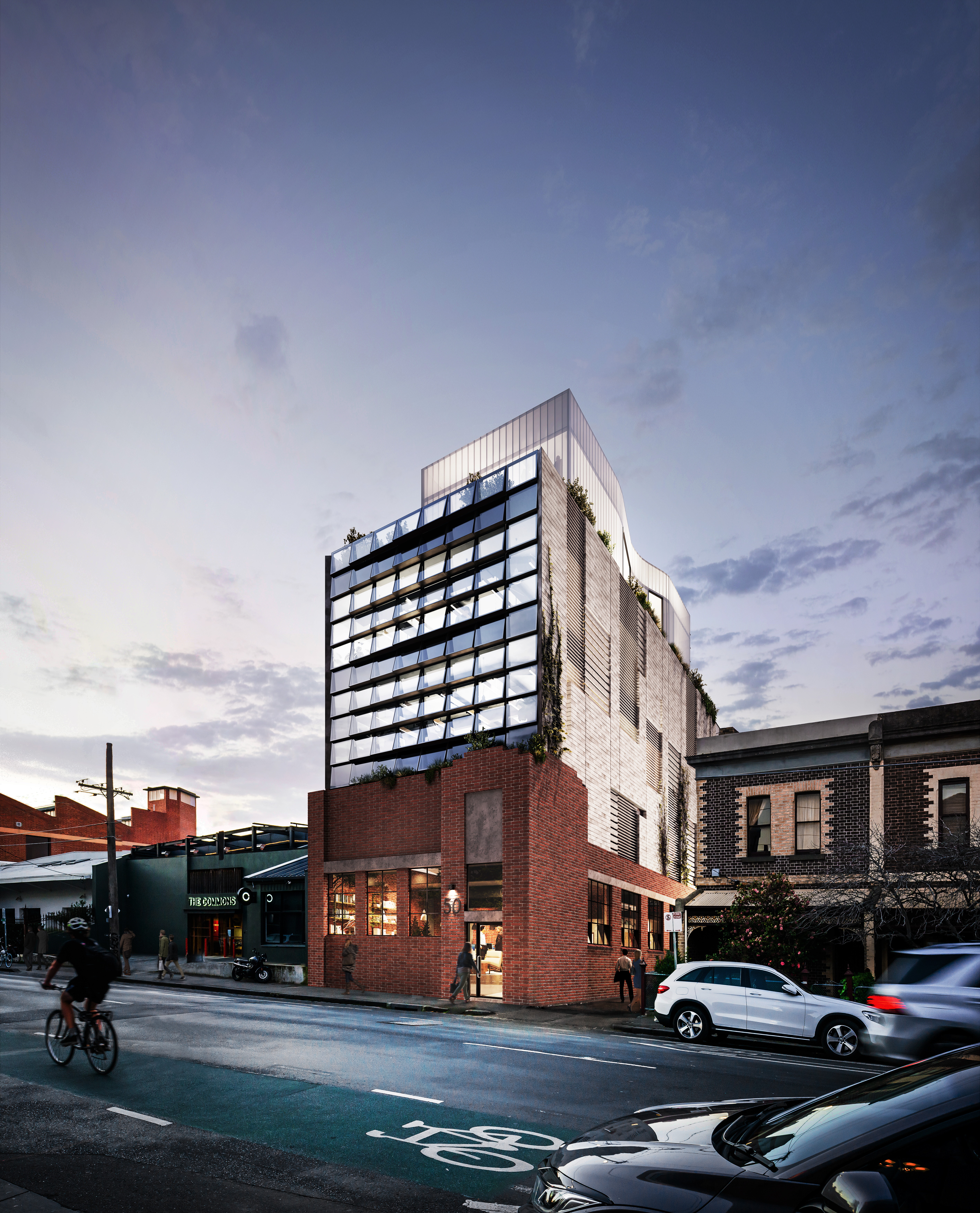They are no longer just blocks of units or high-rise apartment buildings – they are “clusters” of housing.
Upscale residential properties are the new black.
And while there has always been an intersection between the two disciplines of design, the lines between the volatile rag trade and the more enduring world of real estate development are becoming increasingly blurred.
Sophisticated, designer, elegant, sophisticated, timeless, contemporary, gorgeous and countless other couture masterpieces now, more than ever, fit seamlessly into the luxury real estate lexicon.
Enter former fashion mogul Danny Avidan.
“Fashion still influences a lot in my business,” says Sydney-based founder and director of Dare Property Group.
“Whether you’re designing dresses or designing boxes or buildings, it’s all about the little things that matter. Art is always in the details.
“I create mood boards because every project has to be unique.
“It should fit who you’re targeting and define who you’re targeting, it should flow with the area you’re in and it should be new and original rather than a cookie-cutter design.”

Moodboards are a collection of inspirational images, objects, and materials that are commonly used as part of the design process in the fashion industry.
Avidan moved into real estate development after 25 years as one of Australia’s most successful fashion designers who built a rag business empire that included fashion brands such as Charlie Brown, Howard Schwers and Hollywood Fashion Tip.
“The rag trade was so much fun,” he says. “But I realized that the world of fashion was flat – you were global or you didn’t exist – and relying on the local market alone was no longer sustainable.
“If you were a young guy trying to conquer the world, you wouldn’t have the resources from Zara or H&M and so I knew I had to get out of business.
“Sure, you have to be tough to be in the game of ownership too. It’s not for the faint-hearted but fashion is definitely tougher, no doubt.
“In fashion, 90 days – if not sometimes 45 days – after you put the merchandise in the store, you should start discounting the excess.
“Discounting and discounting are the two killers in fashion.
“You don’t have that in the ownership game. If you’re building a great product in a great place and your price is right, you’re not competing with anyone else who wants to stop you or undermine you or whatever.”

Amongst a new avant-garde of upscale property developers, Avidan has used his business acumen and eye for design to establish a niche in the Sydney and Melbourne markets.
Just eight years ago, he made his first post-fashion play with The Carlton – a 15-apartment project in the upscale Sydney suburb of Vaucluse.
“It was very simple compared to what I do today,” he says. “I didn’t know how it all worked.
“I remember someone telling me I should have launched and marketing a project and I said ‘What is project marketing? ”
But the real estate was a perfect fit and it didn’t take the former breach trader long to figure out how it all worked and lay the foundations for his cutting edge brand of real estate development.
Under the banner of Dare Property Group, designer brick and mortar collections now attract wealthy buyers from high profile corporations and ultra-high net worth individuals.
Earlier this year, the penthouse in Dare’s Kalypso luxury development overlooking Sydney’s Tamarama Beach sold for $17 million, or $96,500 per square metre – a record for the exclusive enclave between Bondi and Bronte.
A sub-penthouse on the same project, built on the site of a former backpacker hostel, was purchased for $8.5 million.
Meanwhile, preliminary work is now underway on Dare’s joint venture with Fortis, a 2,329-square-meter small housing development at Wunulla Road, Point Piper, acquired for $39 million.
Designed by Italian-born architect Luigi Rosselli, the plans consist of 15 large luxury apartments on four floors.
Another upscale residential project, Fontaine Villas, has been dedicated to the port-adjacent village of Vaucluse.
In Melbourne, Dare is nearing completion of its six-story Zero Gipps biophilic office building at 50 Gipps Street, Collingwood, and also has a boutique hotel development proposal in Fitzroy in the planning stages.
Avidan says the company’s development pipeline across six locations, with a final value of nearly $400 million, is about more properties in both Sydney and Melbourne as well as a potential regional game.
“We’re not in the business of size, we’re in the business of quality. We don’t want to build 100 or 500 apartments.
“I’ve created a lot of brands in my time in fashion, which is why I’m so passionate about quality, brand commitment, and brand integrity.
“It also means not building in certain areas because it does not suit the brand. I understand the value of the brand and follow that philosophy as I did in fashion.”

Born in Israel, Avidan was a non-English speaking high school student when his parents decided to move the family to Australia, where – in a twist of fate – his uncle Thomas Gluck began engaging in some real estate development with young Harry Tregubov, now dubbed “Harry the Rise”. He is one of the richest businessmen in the country.
“They built their first together, a block of units in Sydney’s inner west.
“Originally, I thought this could be cool. I might join my uncle, work for him and learn the property game.
“Then he moved to the States and I went to college where I had a fashion distraction, which was just an income but I really liked it.”
Avidan made his way through a law degree from the University of Sydney where he worked as an authorized agent for fashion manufacturers, selling clothing to small retailers.
After graduation, he moved on to a legal career where he worked as a commercial attorney on mergers and acquisitions, but it only lasted a year before deciding “it wasn’t colorful enough, it wasn’t fun enough” and started his own fashion business.
“I would go with a group from city to city, and from suburb to suburb… I did really well, I was able to go abroad every year, I had a pillow in a Bondi and an Alfa Romeo. I had a great life of earning and partying.”
But he says it improved when he started dating and eventually married fashion designer Charlie Brown.
Together they have traveled the world and taken business to the top tier of the fashion industry with a host of high-end brands.
“Her business taught me, she taught me style,” Avidan says.
The pair were known for throwing dazzling catwalk shows during Australian Fashion Week with international models and celebrities strutting their collections.
But after selling the fashion business in 2014, Avidan came up with a new business arrangement with his wife.
“One thing we agreed when we ran out of fashion was that we would have the best marriage and we no longer need to argue and fight about business.
“I didn’t want to go home and have a board meeting over the dinner table – so I am very happy to say that Charlie has absolutely no involvement in the property business and that life has never been better.
“However, now I have my son David working with me, and Charlie and my daughter complain that when we sit down together we always end up talking about work.
“He loves the game and I love it too. I love working with him. I love architecture and interior design, and I love marketing it—this is the rag dealer inside of me.”
You are currently experiencing urban developer Plus (TUD+), our premium membership for real estate professionals. Click here to find out more.




